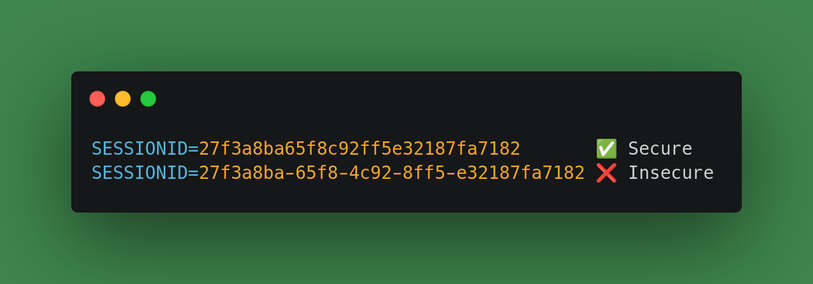I recently ran into an interesting discrepancy:
What you see below are 120-bit Session IDs, one printed as hex and one in the format of a #UUIDv4.
After validating their randomness, I would classify the first as secure but raise concerns about the second.
Why?
Well, according to RFC 4122:
"Do not assume that UUIDs are hard to guess; they should not be used as security capabilities (identifiers whose mere possession grants access), for example."
And that's exactly what a session ID is: an identifier whose possession grants access. As such, UUIDs should not be used in such a case.
What do you think? Is this nitpicking? Or a valid security nuance?
Does the format in which data is displayed have an impact on its security?
I'd love to hear your thoughts.
#Pentesting #AppSec #InfoSec #CyberSecurity #BugBounty #Hacking
